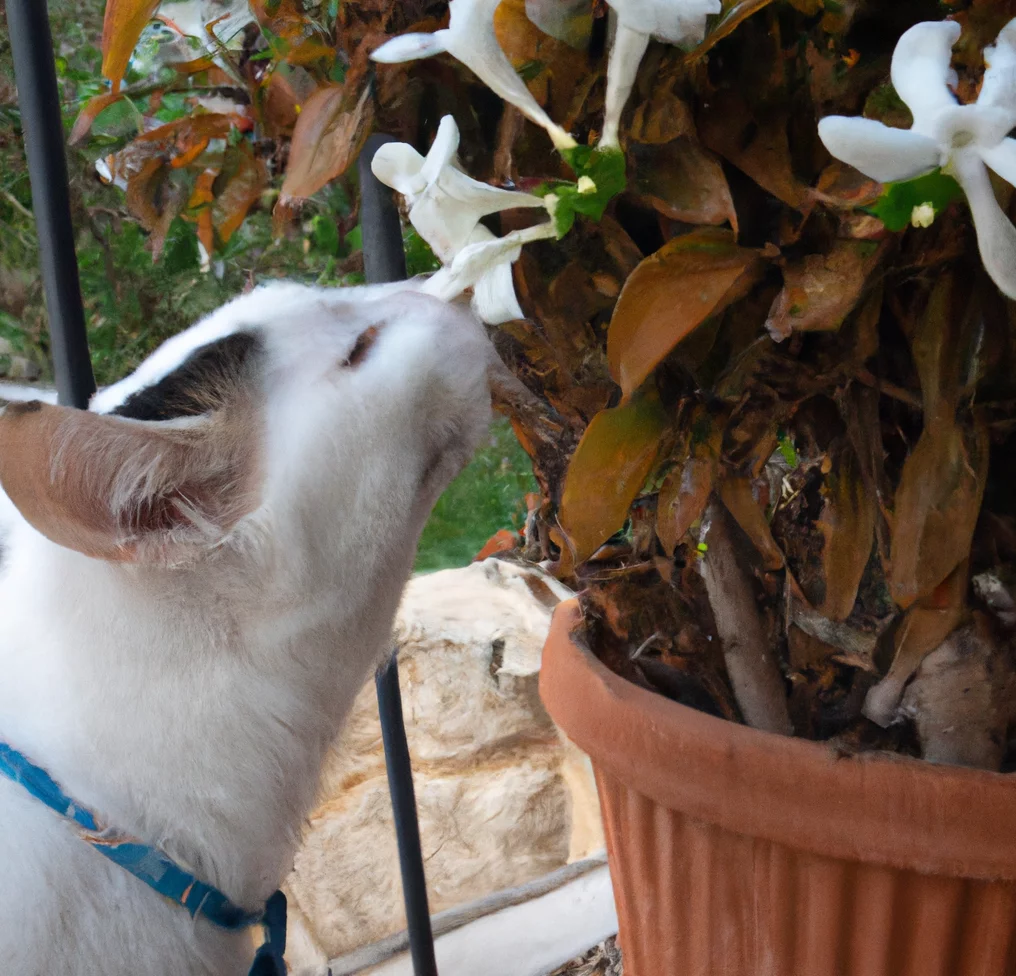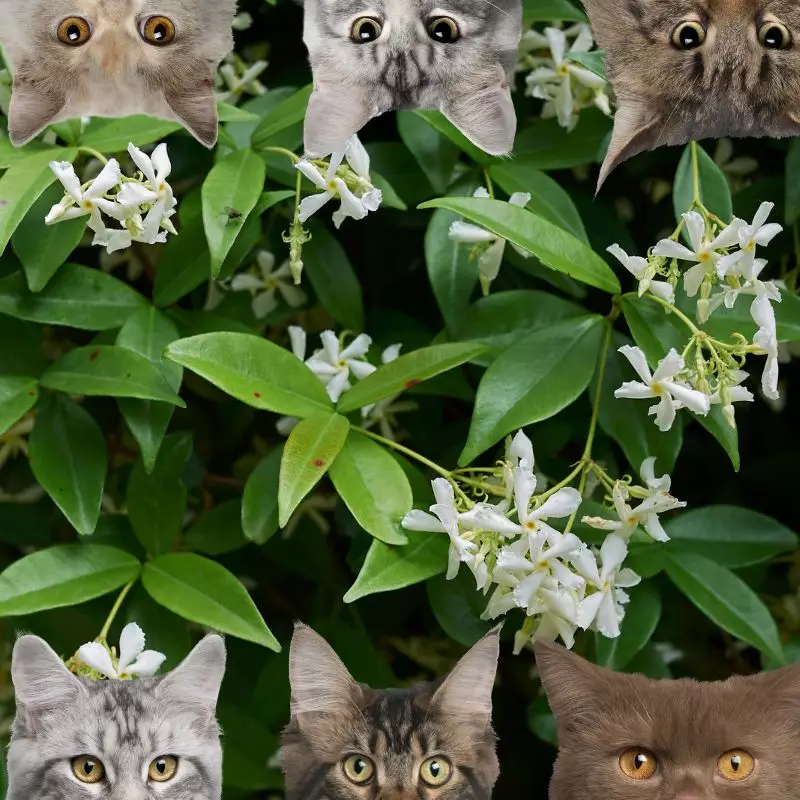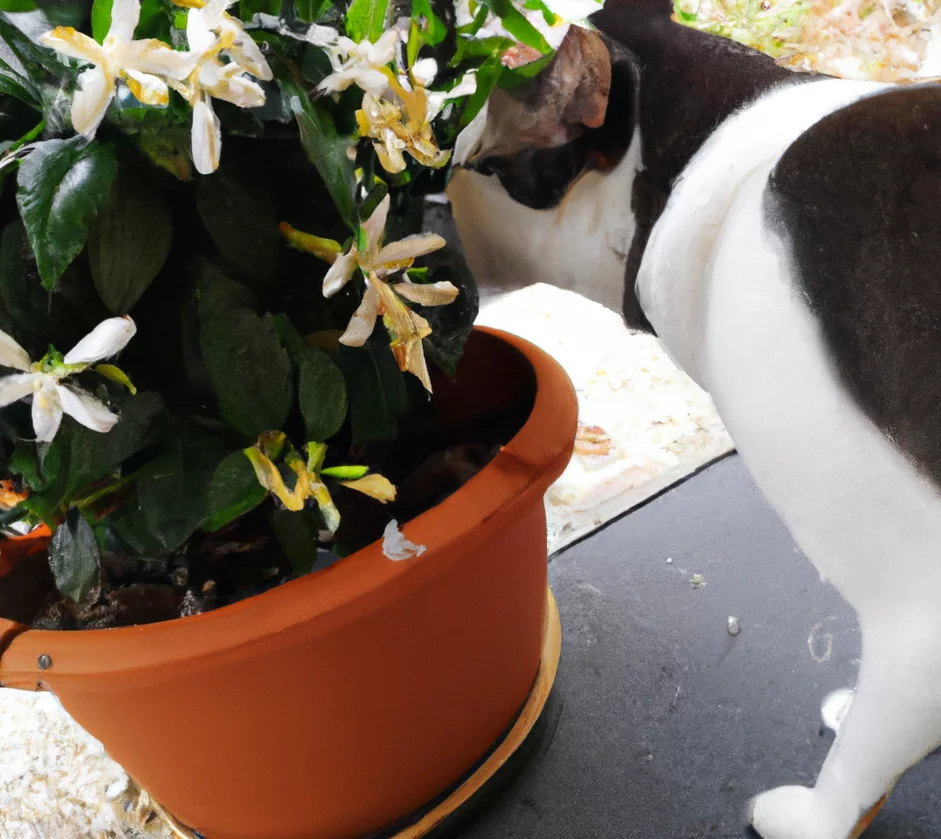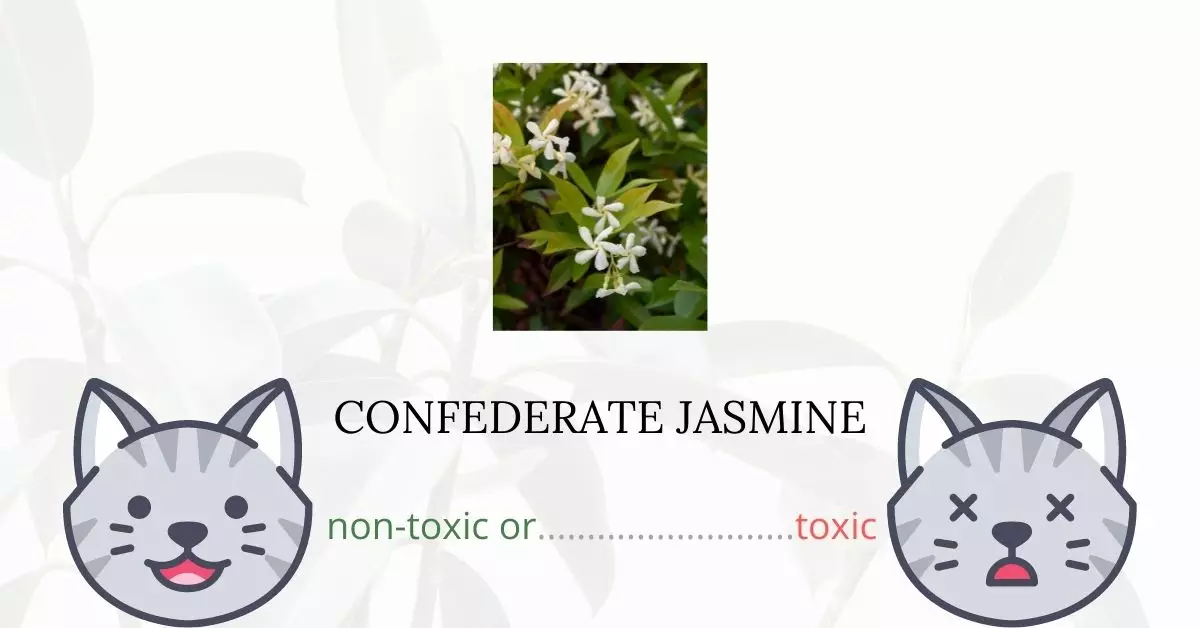Confederate Jasmine or Star Jasmine is not toxic to cats. This information is corroborated by the American Society for the Prevention of Cruelty to Animals (ASPCA), which also confirms its non-toxicity to dogs and horses.
This article was written in close collaboration with a team of experienced DVMs (doctors of veterinary medicine). Their insights and expertise have been instrumental in ensuring that the information presented is accurate and current, focusing on the potential risks associated with Confederate Jasmine and its effects on cats. Moreover, for comprehensive verification, we have extensively researched high-authority websites, including ASPCA and PetMD, for every plant discussed.
Can Cats Eat Confederate Jasmine or Star Jasmine?

According to ASPCA, star jasmine is not hazardous to cats, so you can have it around your cat and enjoy its beauty in peace. All species in the genus Jasminum are harmless to cats, dogs, and horses, according to its animal poison control webpage. However, even a non-toxic plant can induce gastrointestinal trouble in pets if they consume it, according to the ASPCA.
While not an edible flower like squash blossoms or nasturtium, the flower, leaves, and stems of the confederate jasmine are not toxic. Your cat will not become badly ill or be harmed if they eat your plant.
What is Confederate Jasmine or Star Jasmine?

The confederate or star jasmine is a member of the Trachelospermum genus, not the real jasmine (Jasminum).
Confederate Jasmine (Trachelospermum jasminoides) is a woody liana that grows up to 3 meters (10 feet) tall. They generate aerial weed roots when they come into contact with a damp surface; otherwise, they cover the support (they are twining). When cut, they release a white latex that resembles sticky milk, similar to most Apocynaceae. Initially pubescent, young twigs become glabrous with maturity. The leaves are opposite, oval to lanceolate, 2–10 cm long and 1–4.5 cm wide, with an entire border and acuminate apex, and are 2–10 cm long and 1–4.5 cm wide. Summer leaves are dark green, and winter leaves are bronze.
The fragrant white blooms have a tube-like corolla that opens out into five petal-like lobes and are 1–2 cm in diameter. The fruit is a slender follicle with numerous seeds that are 10–25 cm long and 3–10 mm wide.
Star Jasmine is often used as a houseplant and ornamental plant. It’s utilized as a climbing vine, a groundcover, and a fragrant potted plant on terraces and patios in gardens, public landscapes, and parks. It requires well-drained soil, moderate water, moderate fertilizer, and a climbing structure to flower in full sun, partial shade, or total shade.
Keeping Cats Away From Confederate Jasmine or Star Jasmine

Even though star jasmine is harmless for cats, we should keep it away from our feline companion. It’s necessary to keep this plant somewhere safe because cats shouldn’t eat too much of it. To keep your feline buddies away, you can use natural deterrents or aluminum foil.
Limiting your cat’s access to the outdoors can also help to reduce their contact with plants outside your home. This will also protect them against harmful plants in the wild.
Plants to Avoid For Your Cats
If you are a cat owner and unsure if the plants growing in your yard are harmful to your cats, check out this list of toxic plants for cats. You can also check our list of non-toxic plants for cats.





